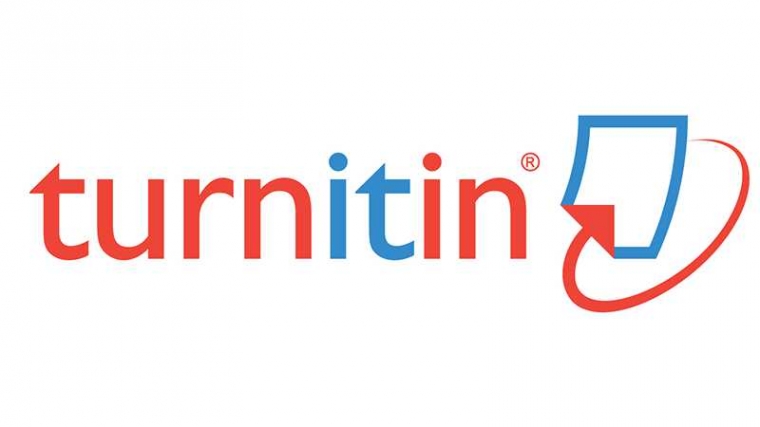Studi Komparasi Efikasi Diri Calon Guru Kimia Dalam Mengajarkan Topik Laju Reaksi
Sari
Abstrak
ÂÂ
Penelitian ini bertujuan untuk mendeskripsikan perbedaan efikasi diri untuk materi laju reaksi bagi mahasiswa calon guru kimia jenjang S1 yang mengikuti kuliah di semester dua, empat, dan enam di Program Studi Pendidikan Kimia Universitas Islam Negeri (UIN) Sunan Kalijaga di Daerah Istimewa Yogyakarta. Jenis penelitian ini merupakan penelitian survei desain cross sectional. Populasi pada penelitian ini, yaitu mahasiswa Program Studi Pendidikan Kimia FMIPA jenjang S1 Universitas Negeri Yogyakarta. Sampel penelitian ini berjumlah 320 calon guru kimia. Sampel penelitian ditentukan menggunakan teknik convenience sampling. Data efikasi diri dikumpulkan menggunakan angket. Validitas teoritis dilakukan untuk melihat kelayakan instrumen yang digunakan. Validitas teoritis dilakukan oleh tiga ahli pendidikan kimia UNY Yogyakarta untuk memberikan saran yang mendukung peningkatan kualitas instrumen penelitian. Hasil penelitian menunjukkan bahwa mahasiswa yang menempuh kuliah di semester enam dan empat memliki efikasi diri yang lebih dominan pada kategori baik dan kategori sangat baik. Dibandingkan dengan mahasiswa calon guru kimia yang menempuh kuliah di semester dua menunjukkan efikasi diri yang lebih rendah.
ÂÂ
Kata Kunci :
Efikasi Diri, Laju Reaksi
ÂÂ
Abstract
ÂÂ
This study aimed to analyze the self-efficacy profile of pre-service chemistry teacher on rate of reaction topic who attend lectures in semesters two, four, and six at the Chemistry Education Study Program, State Islamic University (UIN) Sunan Kalijaga in the Special Region of Yogyakarta. This type of research is a cross-sectional survey design. The population in this study, namely students of the Chemistry Education Study Program, Faculty of Mathematics and Natural Sciences, Yogyakarta State University undergraduate level. The sample of this research was 320 chemistry teacher candidates. The research sample was determined using a convenience sampling technique. Self-efficacy data was collected using a questionnaire. Theoretical validity was done to see the feasibility of the instrument used. Theoretical validity was carried out by three chemistry education experts at UNY Yogyakarta to provide suggestions that support improving the quality of research instruments. The results of the study show that students who study in semesters six and four have more dominant self-efficacy in the good and very good categories. Compared to prospective chemistry teacher students who take courses in the second semester, they show lower self-efficacy.
ÂÂ
Keywords:
self-efficacy, rate of reaction topic
Teks Lengkap:
PDFReferensi
Mauraji, I., Senam., & Wiyarsi, A. 2021. Profile of Pre-Service Chemistry Teacher Self-Efficacy: A Case on Rate of Reaction Topic. Conference: 6th International Seminar on Science Education (ISSE 2020). 541. DOI:10.2991/assehr.k.210326.038
Fadhila, F., Ridlo, S., & Indriyanti, D. R. (2020). Analysis of Learning Implementation, Self Efficacy, and Students Attitude Towards Science in Relation with Science Literacy. Journal of Innovative Science Education. 9(3). 288 – 295.https://doi.org/10.15294/JISE.V8I3.35948
Cave. P. N., Evans, N. W., Dewey. P., & Hartshorn. K. J. (2017). Motivational partnerships: increasing ESL student self-efficacy. ELT Journal. 72(1), 83–96, https://doi.org/10.1093/elt/ccx027
Avargil. S., Kohen., Z., & Dori. Y. J. (2020). Trends and perceptions of choosing chemistry as a major and a career. Chemistry Education Research and Practice. 21(2), 668-684. https://doi.org/10.1039/C9RP00158A
Shams, J.A., & Iqbal, M.Z. (2019). Development of classroom assessment literacy training program for university teachers in punjab. Bulletin of Education and Research, 41(2), 41-52. Retrieved fromhttp://pu.edu.pk/images/journal/ier/PDF-FILES/4_41_2_19.pdf
Bandura. A. (1978). Self-efficacy: toward a unifying theory of behavioral change. Psychological Review, 84(2), 191–215. https://doi.org/10.1037/0033-295X.84.2.191
Creswell. J. W. (2014). Research design : qualitative, quantitative, and mixed methods approaches (4th). United States of America. SAGE Publications Asia-Pacific Pte. Ltd
Widoyoko, E. P. (2009). Evaluasi program pembelajaran. Yogyakarta: Pustaka pelajar
Wiyarsi, A. (2018). Enhancing of preservice chemistry teachers’ self-efficacy through the preparation of pedagogical content knowledge in vocational context.Jurnal Pendidikan Sains, 5(2), 14-23. https://doi.org/10.26714/jps.6.1.2018.14-23
Simorangkir, A., & Rohaeti, E. (2019). Exploring of Students’ Self-Efficacy: The Beliefs while Learning Process in Buffer Solution. International Seminar on Science Education, 1233, 1-9. https://doi.org/10.1088/1742-6596/1233/1/012017
DOI: https://doi.org/10.33387/jpku.v2i2.6265
| Journal Name | Jurnal Pendidikan Kimia Unkhair(JPKU) |
| Elektronik ISSN | 2597-9213 |
| Publisher | Program Studi Pendidikan Kimia, FKIP Universitas Khairun |
| Address | Jalan Bandara Sultan Baabullah Kampus I Unkhair, Kelurahan Akehuda, 97728 Kecamatan Kota Ternate Utara, Provinsi Maluku Utara, Indonesia |
| Country | Indonesia |
| jpku@unkhair.ac.id / jpkunkhair@gmail.com | |
| URL | https://ejournal.unkhair.ac.id/index.php/jpku/index |
| DOI | http://doi.org/10.33387/jpku |

This work is licensed under a Creative Commons Attribution-NonCommercial 4.0 International License.





